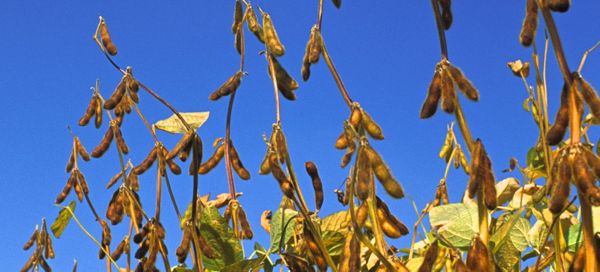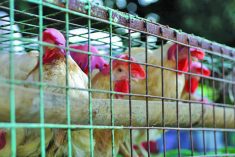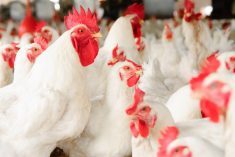Manila | Reuters — The Philippine government said it will challenge a ban on GMO imports ordered by the country’s top court, after the ruling rattled global markets this week over the threat of disruption to millions of tonnes of soybean meal shipments.
Last week, the Supreme Court struck down a 2002 government regulation that allowed the import of genetically modified organisms (GMO) and imposed a temporary ban until new rules were formulated.
The order will halt the Southeast Asian country’s imports of soybean meal, which amount to around two million tonnes a year and mainly come from the U.S. Nearly all of the imports of the animal feed are genetically modified.
Read Also

U.S. grains: Corn sets contract lows on expectations for big US crop
Chicago Board of Trade corn futures set contract lows and soybean futures sagged on Friday on expectations that beneficial weather for U.S. crops will lead to bumper harvests, analysts said.
The Supreme Court’s decision to temporarily ban the “contained use, field testing, propagation and commercialization, and importation” of GMO came alongside a ruling to permanently halt the development of GMO eggplant following a case filed by a group led by the Philippine unit of Greenpeace Southeast Asia.
“What the Supreme Court is saying, I was informed, is to come up with new rules,” Philippine Agriculture Secretary Proceso Alcala said by telephone on Thursday.
“In the meantime, there will be a motion for reconsideration to be filed once we have received a copy of the decision.”
Such a request would mean there should be no ban while the new rules are being drafted, he added.
Markets have been sensitive to GMO issues in big Asian consumers. In November 2013, China began rejecting U.S. corn shipments saying they were tainted with a GMO Syngenta corn variety approved in the U.S., but not in China. Beijing has since eased the restrictions.
‘Food crisis’
The court ruling has also sparked alarm in the Philippine food industry.
“We may plunge into a food crisis if this is implemented,” said Ric Pinca, former vice-president of the Philippine Association of Feed Millers.
“You would not have pork, chicken, and fish available in the market.”
Banning GMO soymeal imports would mean that Philippine buyers need to buy non-GMO supply which would be easily US$80-$100 a tonne more expensive, said a Manila-based importer.
“Are we affluent enough as a country to afford that? And there is not a lot of non-GMO cargo available,” he said, adding that most soymeal available from the U.S. and Argentina, another major source for Manila, is genetically modified.
The Philippines gets nearly all of its soymeal needs from abroad, averaging two million to 2.2 million tonnes a year, importers say.
“It would directly affect my business because I have contracts in place that were bought and sold even before this came out,” the Manila-based importer said.
— Reporting for Reuters by Enrico Dela Cruz and Manolo Serapio Jr.















